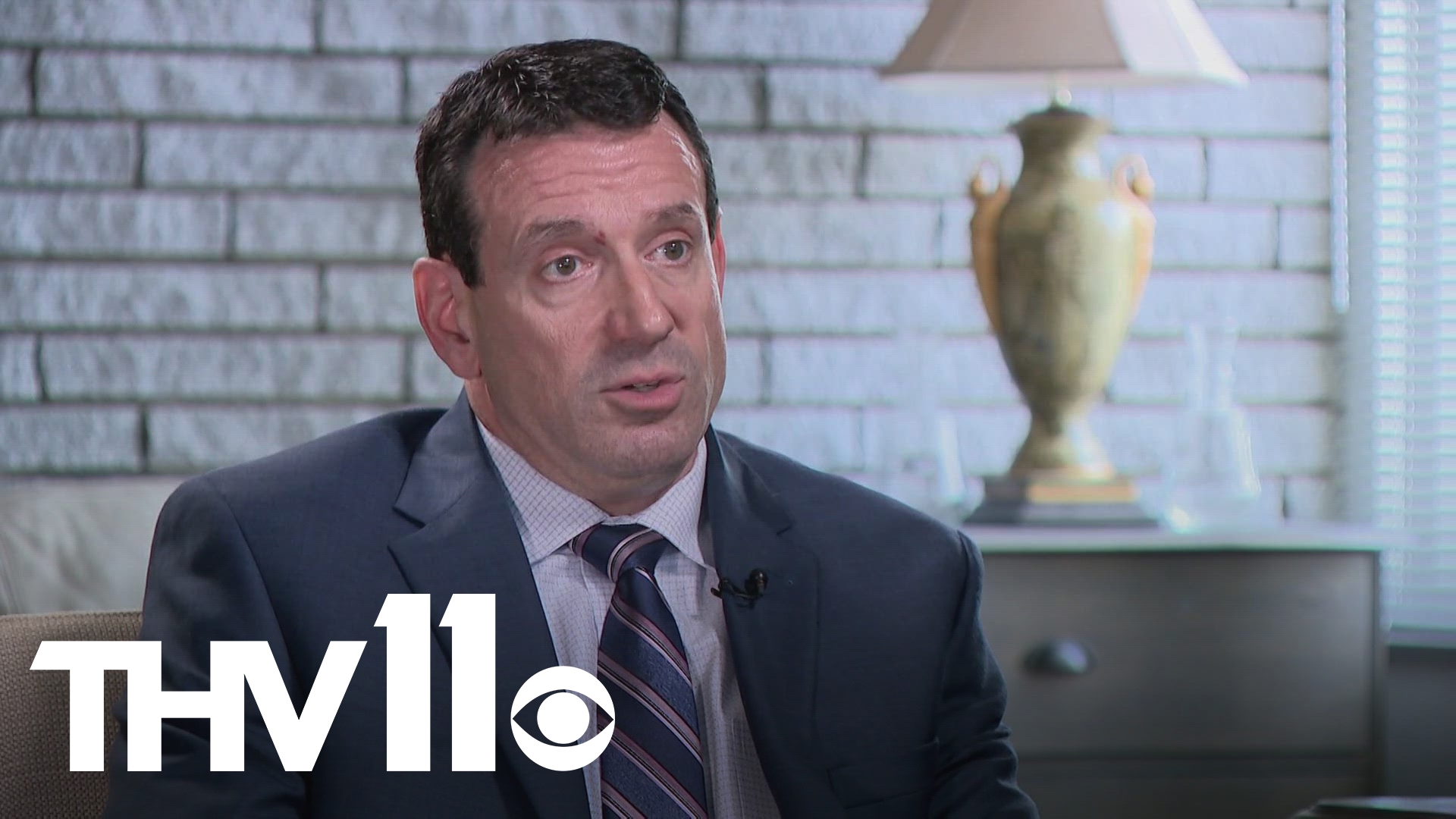LITTLE ROCK, Ark. — When a person is arrested for a crime in the U.S., sometimes the case can be far from closed. Courts in Arkansas and across the country are facing backlogs from pandemic delays, so even if a suspect is caught, it could still be years before justice is served.
That means your constitutional right to a speedy trial might not be as fast as you think.
"A year and six months is not a speedy trial," Marcy Welch said. "Never in my wildest nightmares did I imagine I would be sitting here talking about my son having been murdered."
A year and a half ago, Marcy lost her 27-year-old son Brock after he didn't return to their home in Sherwood on December 29, 2023.
The next day, Marcy reported him missing to the police. Then only days later, his own family found his body in North Little Rock.
Marcy said Brock was shot multiple times after giving a stranger a ride that night.
Police arrested Emil Mccoy weeks later, but it would be more than a year before a court closed the case.
"A lot of heartache, a lot of sadness, a lot of being stuck, and not being able to move forward. A lot of cringing when the phone rings, and maybe it's the court system," Marcy described.
Brock's case would add to the nearly 14,000 criminal cases that prosecuting attorney Will Jones inherited when he took office in Pulaski County that year— that's double the caseload before the pandemic closed courts for nearly two years.
"Everybody remembers what the pandemic was like," Jones said. "And I think the judicial system suffered a great deal because of that, and a lot of those families were caught up in that. A lot of families that were looking for justice, and then really didn't have any hope for a long time."
Today, his office has been able to close over 4,000 cases in the last year and a half. But just about 10,000 are still awaiting a verdict— and that's not even counting juvenile court.
"It used to be what I would say when a family came in, I would tell them, look, it's going to take about a year to get this case resolved. And now I tell them with the COVID backlog and all the numbers as high as they are I tell them to be prepared for two years," Jones said. "One of the cases that we got resolved in December had been like, close to five years, which is just terrible."
Technically, that timeline can still follow your constitutional right to a speedy trial.
"The general rules are we have a year to bring someone to trial from the date of arrest. And that's a speedy trial rule," Jones explained. "And if they're in custody, we have nine months to bring him to trial. Now there are things that can happen throughout the court process, they can extend that time out."
A process Marcy wasn't sure she could wait for much longer. So, after more than a year, she approved a plea deal.
"I was up till two or three o'clock in the morning. Did I do the right thing? Should I have gone ahead and gone to trial? Was I selfishly saying 'I don't want to go through trial' when my son experienced it," Marcy said.
Mccoy pleaded guilty to first-degree murder and received a 33-year sentence.
"It's been very eye-opening, and not in a good way," Jones added.
Those on trial remain innocent until proven guilty. However, they also wait through lengthy court cases, sometimes out on bail and other times, behind bars.
In Arkansas, even before the COVID backlog in 2019, two out of every three people detained in local jails had not been convicted of a crime.
Now, families like Brock's want more action from the state.
"I think they need to look at some things and they need to say, how can we make this system better for the victim and the accused," Marcy said.
Meanwhile, the prosecuting attorney's office works to catch up while still putting together a solid case.
"If it takes that long, then we need to make sure that we're right about it and make sure that we're getting all the evidence that's there to try to get justice for their family," Jones said. "If we can get back to those pre-COVID numbers, then I feel like we've got a fighting chance to get justice for families in a shorter amount of time.
In an effort to catch up to pre-COVID numbers, Jones' office is working to see which cases can be solved by a plea agreement, like Brock's, to speed up the process.
Whether a suspect stays in custody during a trial or is out on bond, and for how much, is up to the individual judges in each county.

